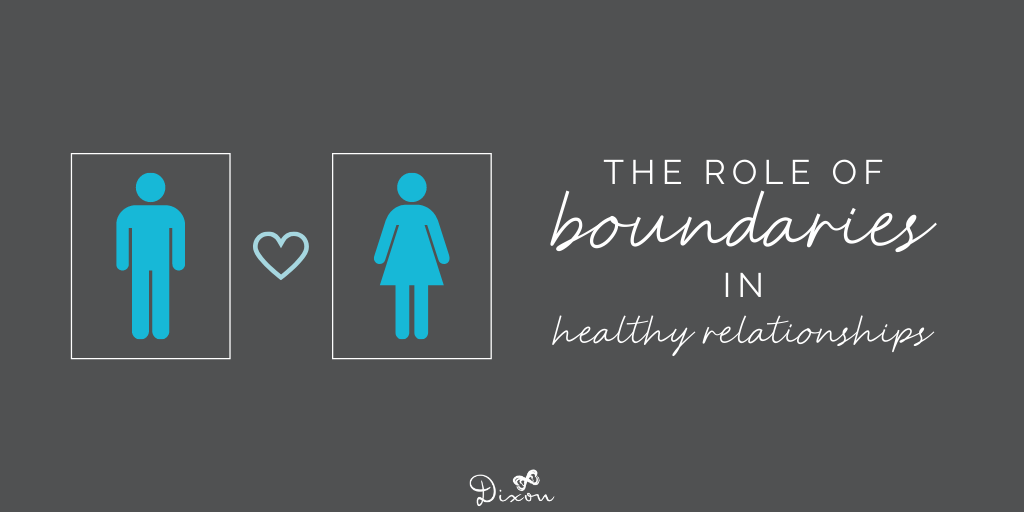
Whether it’s for your friends, family, or even your employer, setting healthy boundaries is key to creating and maintaining happy, healthy and fulfilling relationships.
Boundaries not only help serve as a reminder that as individuals we have our own unique needs, interests, and feelings, but they also help us honour these aspects of ourselves and distinguish what we want for our own good and what others want from us. Without healthy boundaries, we contribute to unhealthy and dysfunctional relationships without realizing it.

How do I set healthy boundaries in my relationships?
To set healthy boundaries one must first be able to define one’s boundaries.
Boundaries encompass both external or physical and internal or mental, emotional, and spiritual boundaries. While physical boundaries such as a locked door, or bodies, a password-protected computer are easy to see, internal boundaries like our thoughts, emotions, and beliefs are invisible and interpreted based on our communication and behaviour. It is important to remember that each person is responsible for their own thoughts, emotions and beliefs.
Setting healthy boundaries can be difficult, and may feel uncomfortable at first. Still, setting healthy boundaries is your right—don’t be sorry for communicating your needs! To start off, make sure you have a good understanding of what your needs and values are.
Knowing the most effective ways to communicate your boundary to the other person is key. Talking about a boundary in the moment that someone does something that makes you uncomfortable might work with some people, but for other relationships, it might work better to set aside time to have a thorough discussion.

Regardless of how you decide to bring it up, be specific about the boundaries you’ve defined. Using “I” statements may be helpful, as is explaining why you need this boundary and focusing on the others’ behaviours instead of motives.
For example, if your partner makes a negative comment about the food you’re eating, try saying something like: “I would like you to stop making negative comments about what I eat. If you have a concern about what I eat I appreciate it if you communicate your concerns and the reasons for your concerns instead of negative comments that are not constructive. “
When one has healthy boundaries, one has a strong sense of self and safety. A good example is a room with intact walls. It also has a solid door, but the doorknob is only on the inside. That means you can pick and choose who gets to come into your room, and who must stay outside. Healthy boundaries help you keep out toxic people, emotions, thoughts and beliefs.
How do I know if my boundaries have been crossed?
Boundary transgressions aren’t always deliberate, and they aren’t always obvious—sometimes the person crossing a boundary hasn’t realized they’ve done so at all. Regardless of what form it takes, you have a right to assert your needs, and your feelings are valid.
Sometimes, people will try to make us do things that we don’t want to do by pressuring us into them. For example, if you tell your sibling you can’t babysit your niece on a certain day, they might try to pressure you into it by saying things like “Oh, but we’re family,” “It’s only for a couple of hours, I do so much for you,” “If you love me/her, you’d look after her,” “But you’re so good with her, I can’t trust anyone else to look after her.”
These statements, even if they seem innocuous in nature, are a form of coercion. Coercive acts are essentially meant to get you to “change your mind” about a boundary you’ve already set in place and are boundary transgressions in and of themselves.
What do I do if my boundaries have been crossed?
In safe, healthy relationships, open communication is everything. You have a right to address things your partner has done that have upset you or made you uncomfortable. Prepare for these conversations in any way you need to—sometimes it seems to be best to address things right away, and in others, it may help to think about things and write them down first.

If your boundaries have been crossed to the point that you believe your relationship is abusive, it may be time to consider ending the relationship.
Leaving an abusive or unsafe relationship can be dangerous, so it is very important to have a plan on how to leave safely and how you will stay safe if you can. Talking to someone you can confide in may be helpful. If you are in Metro Vancouver, Dixon’s 24-hour intake line is accessible at 604-298-3454. For resources across the Province please call VictimLink BC at 1-800-563-0808. If you are in immediate danger, please call 911.
